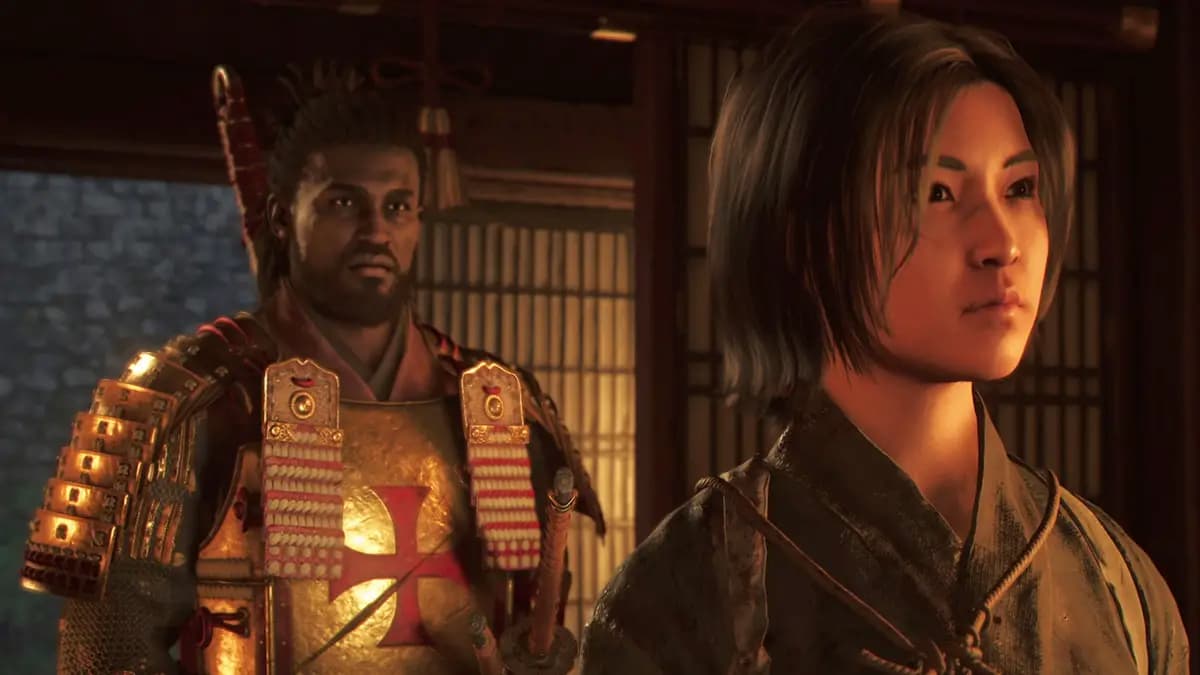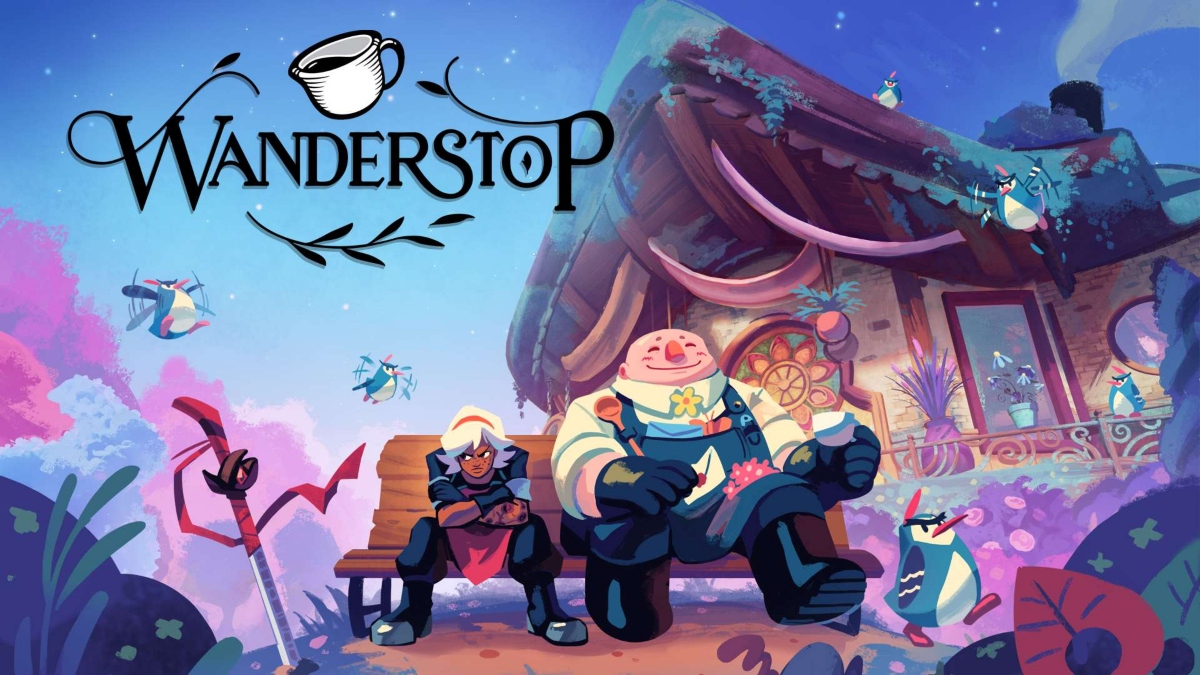Like many people, I moved to a new place after college. I didn’t know a soul in New York City or how to get around, and just buying groceries was an impossible task. By the time I left ten years later, I knew that town like nobody’s business. I wasn’t anyone special, but if you dropped me anywhere in the five boroughs, I could tell you a memory, which corner to avoid, and where to get a slice – the kind of familiarity you only get after exploring a location until it feels like home. That’s what Kirkwall will feel like after playing Dragon Age II.
After choosing to be a mage, rogue or warrior, you play as Hawke, a human emigrant to the city-state of Kirkwall after your hometown of Lothering is destroyed by the Blight of Darkspawn from the first game. Just getting into the city with your family is a quest, as the Kirkwall guard has closed its gates to the flood of refugees from Ferelden. One of your first friends in your new home, the beardless dwarf Varric, helps you claw your way to riches and along the way you’ll not only be named Champion of Kirkwall, but you’ll learn where to buy the best robes, which whore to befriend in the Blooming Rose, and to walk the other way if you see a horned Qunari or a scowling Templar coming towards you, especially if you’re an apostate mage.
After the bombastic location-hopping in Origins, it’s refreshing to experience such a personal story and become emotionally connected to the struggles of a single community. The framed narrative of Varric regaling the Chantry Seeker Cassandra with your deeds as you accomplish them is a unique presentation that makes the player feel like you are part of the history of Kirkwall, that the myriad of tasks and sidequests you complete are important not just for Hawke but for the whole city. Finding a serial killer who gives white lilies to his victims, or making a mine safe again so the workers can return feels somehow more meaningful than ridding the world of Darkspawn just because that’s the plot dangled in front of you.
In fact, like Uncharted 2 and Empire Strikes Back, Dragon Age II is the rare sequel that improves upon its already excellent predecessor. The dialogue options inspired by BioWare’s work on Mass Effect allow you to roleplay the voiced character of Hawke however you want. Thanks to handy symbols in the radial menu, you can be a snippy prig, a righteous hero, or a wiseass depending on your mood and the situation presented to you. Your mannerisms and choices will affect how your companions feel about you, but instead of only rewarding the player for placating, say, your friend Anders’ desire for all mages to be free from the Circle, you also gain benefits from a contentious relationship. Get far along enough on either end of the spectrum from Friend to Rival and your companion will receive strong (and distinct) bonuses to combat.
I love this system, because it encourages you to make solid roleplaying decisions early. If you waffle and try to make nice when you actually can’t stand Anders and his heavy-handed “Mages rock!” political stance, then you get no benefit at all. If I’ve learned anything from a lifetime of RPGs, mechanics that support storytelling and vice versa are the goal of all good game design and Dragon Age II manages this perfectly.
The party-based combat is frenetic, with no auto-attack making you feel in the thick of it with constant button-pressing. I enjoyed taking a more active role and not being forced to pause after every spell or special move goes off to give more orders – although you can micro-manage the tactics if you’re OCD about it. Even micro-managing is a breeze because you can pause and give separate orders to each character before you restart the combat. This, coupled with the move-to-point command, lets you order your party to move in separate directions and offers the finely-tuned tactical play that was only possible in the PC version of Origins. Orders you do make with the improved radial menu are immediate, rather than annoyingly waiting for your next strike or a spell animation to play, further quickening the pace of the action. Using the tactics menus to preprogram behaviors is more effective than ever before, with more intuitive triggers and options, and it allows you to focus on the character that you want to rather than babysitting one you don’t.
Creating fun combinations of spells for a devastating effect, like using a fireball to start a grease fire in Origins, has now been expanded across all three classes with a concept called cross-class combos. Each class has a debuff they can bestow and abilities that do excessively more damage against the other class’s debuffs. Rogues can disorient foes, which allows the warrior in the party to destroy lesser thugs with a single move that does triple or even sextuple damage. Mighty blows from warriors wielding two-handed blades stagger enemies, and mages can exploit that with a chain lightning spell for an instant death. The tactics system dovetails nicely with cross-class combos by allowing you to use the debuffs as triggers for abilities, again reducing the need to micro-manage and letting you to focus on the action of backstabbing the crazy Templar knight.
A slight drawback is that the spells and abilities with these combos are only available in a few of the many talent trees of each class and, because the damage that these combos generate is so above and beyond normal combat, it forces the savvy player into only investing in those trees, especially on the higher difficulties. Don’t get me wrong, it’s awesome when you smash a dude for tons of damage, but the combo abilities should have been peppered throughout all of the trees. Nobody likes forced choices producing a cookie-cutter party.
The difficulty level has been lessened so that on the default setting you don’t feel like every fight means frustrating trial and error. There are still occasional fights that will kick your ass, especially with assassin-type enemies that stealth around the battlefield and pop up to take out your mages, but, in general, the curve may have been adjusted too strongly as even early boss fights can feel artificially easy. Players who grok the cross-class combo system, or who loved the challenge of avoiding friendly-fire in Origins, would do better to start on Hard or even Nightmare if you’re saucy.
Any complaints I may have about Dragon Age II are minor annoyances, easily ignored for the leaps made in other areas. Simplifying the crafting system to reward the kind of player who must search every nook and cranny without muddying up the inventory is a novel change that was much needed in the genre. The triumphant sound that plays when you discover a new source of raw lyrium or a new recipe makes you feel good, but not as awesome as it feels to visit a crafting table and just be able to purchase the Elfroot potions or Deathroot poisons you need. Some players may have loved min-maxing every piece of equipment for each party member in Origins, but I didn’t miss anything by just concentrating on their weapons and accessories. I was content to discover the specific armor upgrades for companions that are sprinkled around the city, again rewarding the player for exploring.
Not only does Dragon Age II play better, it looks absolutely gorgeous. Gone is the mess of pixels and aura bugs that were the graphics of Origins and in its place is a combination of environments that just sing — the golden statues of Andraste in the Chantry, the ships docked in Lowtown, the eddies of the Wounded Coast and the dank caves and dungeons all look wonderful. Individual textures may not look amazing under scrutiny, but as a whole each character’s face is expressive across a wide range of emotions. If I have a concern, it’s that certain dungeons below Kirkwall are visited two or three times with only small variations. “Oh, we’re in that place again. Glad somebody restocked the chests with treasure.”
The advancements in RPG mechanics would be enough to set it apart, but the real achievement of Dragon Age II is in the story-telling. I could point out the improved combat and graphics till there’s blood covering my face, but BioWare is one of the few companies that uses the advanced computing power available to modern game designers to let you actually play a role. As Hawke, you care about your mother and family, you care about your city and the conflicts that threaten to tear it apart. In a game as dense as this, and it will occupy at least fifty hours if you follow every hook, it’s a triumph to just complete the story. But if I was proud to become the Champion of Kirkwall, I was more happy to have the tools to tell the story the way I envisioned it.
Bottom Line: A pinnacle of role-playing games with well-designed mechanics and excellent story-telling, Dragon Age II is what videogames are meant to be.
Recommendation: Buy it, steal it, beat up your little brother so you can play it.
[rating=5]
This review is based on the Xbox 360 version of the game.
Game: Dragon Age II
Genre: RPG
Developer: BioWare
Publisher: Electronic Arts
Release Date: March 8th, 2011
Platform: Xbox 360, PS3, PC, Mac
Available from: Amazon (Xbox 360), Amazon (PC, Mac), Amazon (PS3)













Published: Mar 8, 2011 4:15 AM UTC